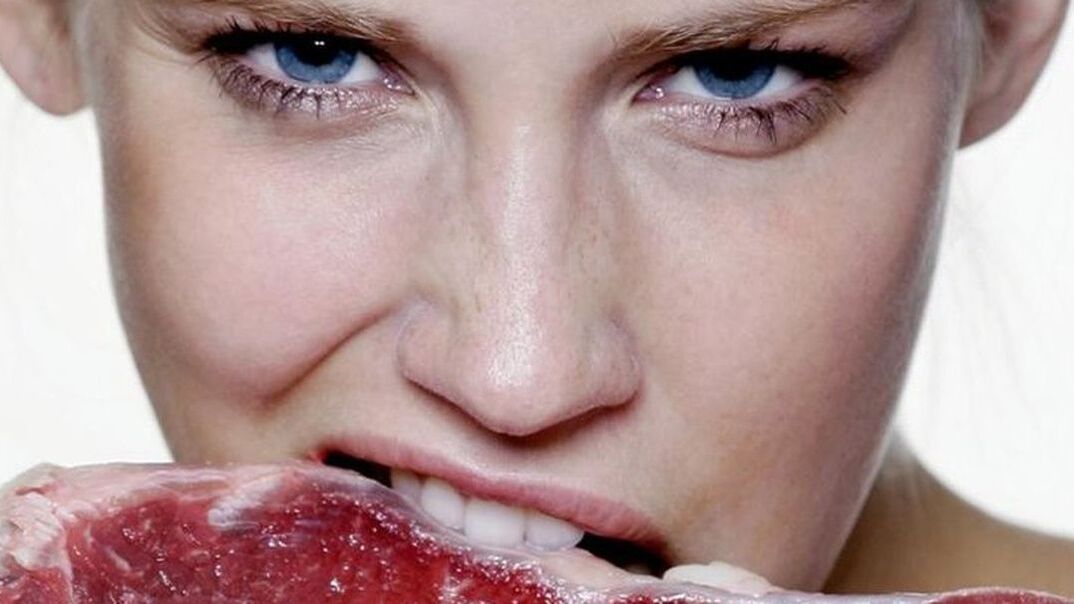
So, the keto diet is magical. There were too many rumors and speculations surrounding him, how many hopes were pinned on him, how many hours had been spent in the toilet because of him. Keto Apologists touts rapid melting of fat glaciers, incredible performance, mental clarity, etc. etc. in the same spirit. We don't know where this data comes from, because scientists are just beginning to study this diet under the microscope.
Let's discuss all the pros and cons of the fat diet.
The gist for beginners: what it is in simple words
Let's quickly clarify an important point: a high-fat diet (ketogenic diet) is still not a low-carb diet, it is primarily a super-high-fat diet.
The keto diet is a low-carb diet for weight loss with a moderate amount of protein in the diet and active use of fat.
If you count calories, the % calorie distribution is:
- 80% of calories come from fat,
- 15% protein kcal. ,
- the remaining 5% are carbohydrates.
That is, at least 75% of the calories in your diet should come from fat; sources that can be eggs, bacon, sausage, avocado, vegetable oil, coconut oil, butter.
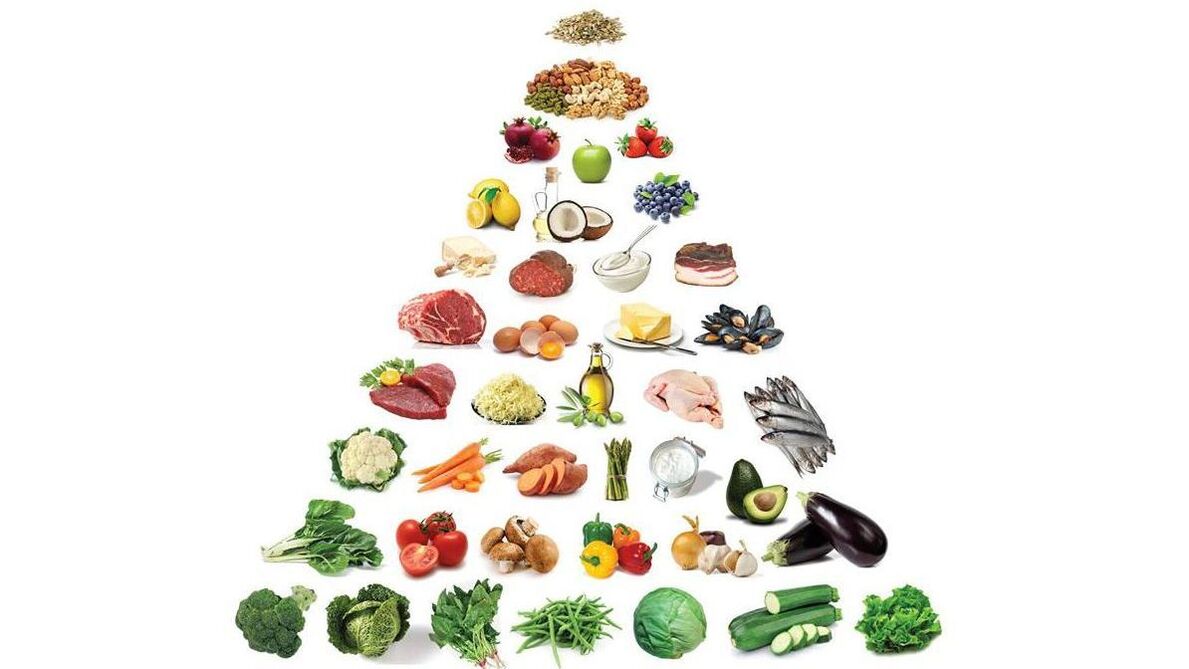
We also want to note that this is not a diet based on animal fat, so called. a purely meat diet, not at all! Vegetables are eaten, but with moderate or complete avoidance of starchy vegetables such as potatoes.
What is important to know for beginners? What is a "fat diet" in simple words?
So, the essence of the ketogenic diet is simple in words. With such a nutritional system, the body enters a state called "ketosis" and begins to synthesize ketones for subsequent energy generation (hence the name "ketogenic" diet), and such a transition is possible only if carbohydrate intake is limited.
Our body is able to fully meet its needs from fat storage. But the absence of carbohydrates is terrible for our brain and nervous system, which needs glucose: the brain cannot use fatty acids for its energy supply.
When we ignore carbohydrates, the body, in order not to stretch its legs, begins to deviate and create ersatz carbohydrates - ketone bodies.
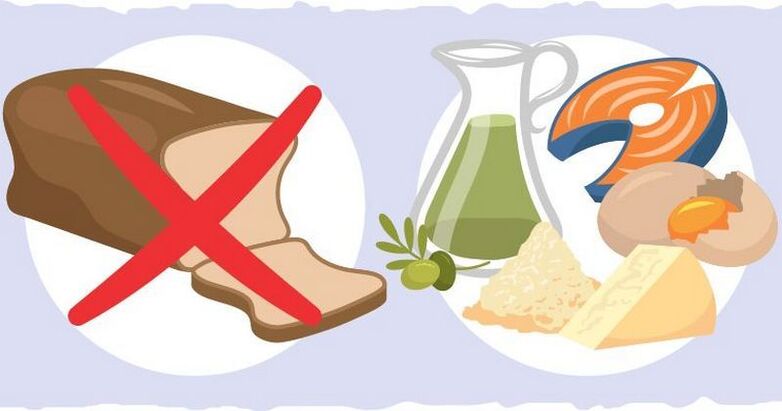
Ketone bodies are organic biomolecules, soluble in aqueous media, that are synthesized in the liver from fatty acids when food intake (especially carbohydrates) is reduced. Once transported to extrahepatic tissues, these biomolecules can be used as an energy source.
Ketone bodies are always synthesized in small quantities in the human body, but usually the concentration of ketones is so low that they cannot be detected in a urine test.
However, when the level of ketone bodies in the blood increases (a condition known as ketonemia), they begin to be excreted in the urine (known as ketonuria); ketonemia and ketonuria taken together indicate the body's transition to a state of ketosis.
The main goal of the ketogenic diet is to put the body into a state of nutritional ketosis (not to be confused with pathological ketosis), which ultimately directs the metabolism to use fatty acids and ketone bodies as the main source of energy.
At the initial stage, the main thing is not to overdo it with the amount of protein.
If you eat too much protein (more than 20%), the body starts the process of gluconeogenesis, and eventually all excess protein is converted to glucose, which prevents you from entering a state of ketosis.
Therefore, it is important to choose fatty foods with some protein. No need to lean on chicken, buy lean beef instead. Instead of diet turkey, buy regular meat. Only 20% of your calories should come from protein.
Also remember, you need to drink a lot, a lot. Because the main sign of ketosis is the smell of acetone on your body and breath. Is it cold?
The fact is that excess fat derivatives are excreted by the body, giving this specific smell. Earlier, we discussed that fat energy factories are the most "polluting".
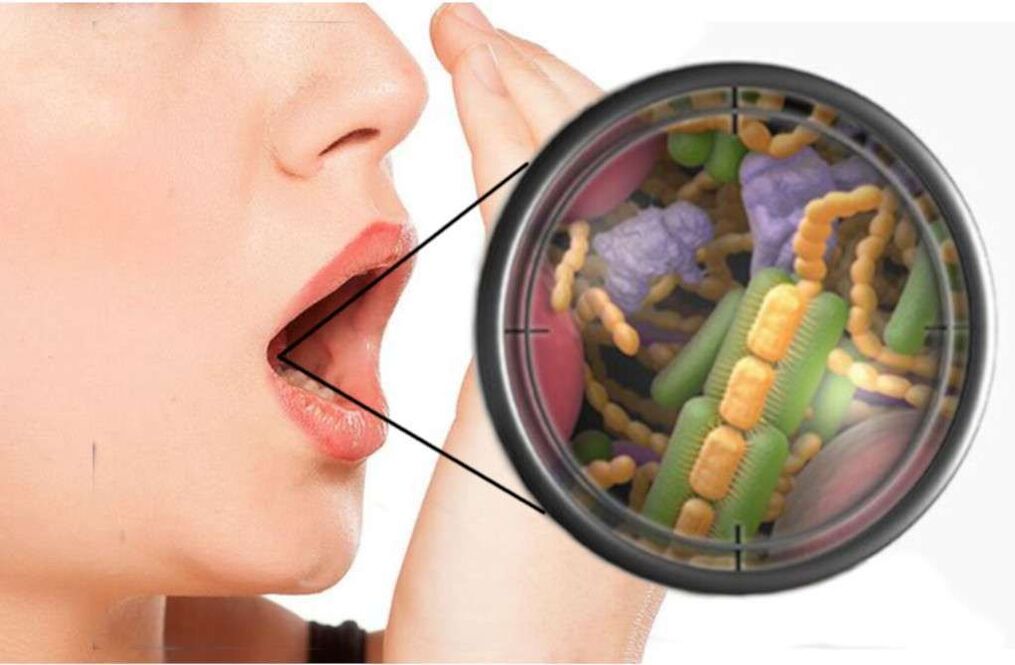
It is not always possible to completely remove the smell. But most odors can be removed with plenty of clean water.
That. When you drink a lot of water (from 3 liters a day), excess ketones are excreted in urine and sweat. This removes most of the odor after showering. In addition, it improves well-being (eliminates fatigue).
Fun fact: the keto diet was originally created for epilepsy.
Why we don't recommend: the dangers of eating fat
For one simple reason: this is not a balanced diet. And such a diet, which openly denigrates any food, is absolutely not included in our concept: "Beauty does not require sacrifice, beauty requires health. "What kind of freedom from whale pressure can we talk about when you exclude a large amount of foodfrom your diet? . .

We do not deny that the body can exist more or less adequately in a state of minimal or complete absence of carbohydrates, subject to adequate protein intake and the physiologically necessary amount of fat, but ideally still ensuring the presence of all three nutrients in the diet, i. e. Use a balanced diet to lose weight!
Is it possible to lose weight?
Often people, in the pursuit of slimness, begin to believe all kinds of fairy tales such as "exclude this food group and the weight will disappear by itself. "This is where such monsters are born, such as the paleo diet.
Let's look at this interesting question with you: "Is it possible to lose weight by eliminating protein, carbohydrates or fat from the diet? " The excellent Line McDonald will help us in this (here is an excerpt from his work).
Imagine you eat a certain number of calories, but get them from different sources: in the first case, you will get them mainly from carbohydrates; in the second - from protein, and in the third - from fat.
On carbohydrates
Imagine that we get most of our calories from carbohydrates. Carbohydrates are rarely converted to fat (a process called de novo lipogenesis) under normal nutritional conditions.
There are exceptional situations, for example, chronic carbohydrate overeating. This means 700-900 grams of net carbs per day for several days.
In this situation, carbohydrates overwhelm glycogen stores, exceeding the number of calories needed for the day, and you end up converting carbohydrates to body fat.
But when you eat more carbs, you burn more carbs and less fat. And that's why, even though carbs don't turn directly into fat, too many carbs make you fatter.
In general, by inhibiting the breakdown of fat, excess carbohydrates force you to store all the fat you eat in the form of subcutaneous reserves, preventing you from burning the existing ones.
Yes, carbs don't make you fatter directly by storing them in fat, but excess carbs still affect your fat reserves, preventing you from burning the fat you eat during the day.
This is why exceeding your daily caloric intake by 500 fat calories or 500 carbohydrate calories makes you fat, they just do it for different reasons and in different ways.
An additional 500 calories of fat is only stored under the skin, and 500 calories of carbohydrates make it so that all the fat eaten during the day will go into the reserve, because carbohydrates will be oxidized, not fat.
Bottom line: When you eat more carbs, you burn more carbs and less fat; when you eat less carbs you will burn less carbs and more fat. Didn't think so?
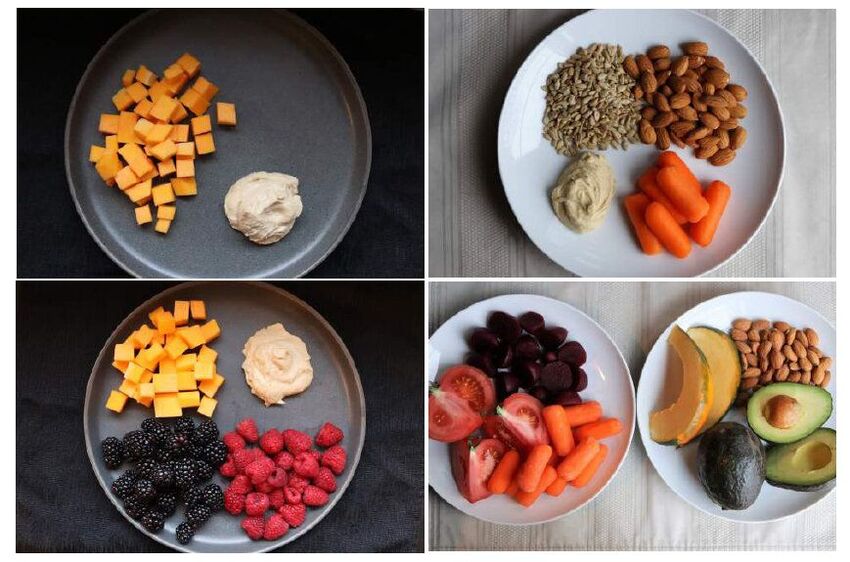
On a squirrel
Protein friends are never converted to fat or stored that way. But if you eat a lot of protein, the body will use it for energy (instead of carbohydrates and fats), which means other nutrients will go into storage.
As a result, eating too much protein will make you fat, just not directly, but due to the fact that all the fat you eat goes under the skin.
Of course, protein has the highest thermal effect, so more incoming calories will be used to digest food. Excess protein is less likely to make you fat, but if the caloric balance is exceeded, you will still be fat.
But not through the direct conversion of protein to fat, but through a decrease in the amount of other nutrients that are burned.
Bottom line: if you eat more protein, you burn more protein (and therefore less fat and carbs); eat less protein and you'll burn less protein (and therefore more carbs and fat). Introducing your face, you now look exactly like this:
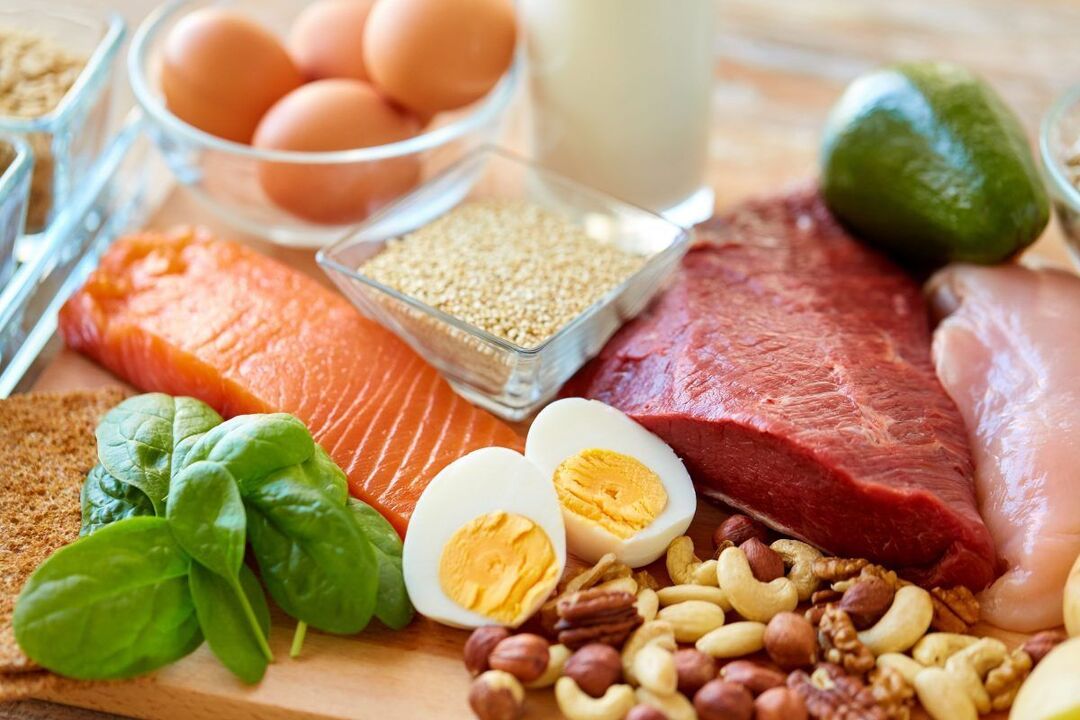
On fat
Fat supplied with food is mainly stored; if you eat more of it, this does not significantly affect the oxidation of subcutaneous fat.
When you eat fat, their fate will be stored in fat storage, because. . . its use has little effect on fat oxidation. It also has no significant effect on protein or carbohydrate oxidation.
Overall conclusion: All three options make you fatter, but the mechanisms are different.
The only difference is that fat is stored directly, and protein and carbohydrates force you to store the fat you eat.
Of course, there will be those who will misunderstand that low-carb and/or low-protein diets have no advantage over others in terms of burning subcutaneous fat.
But with this diet, even though you burn more fat, you also eat more fatty foods. So the overall fat balance remains the same, despite changes in other components. No matter how you look at it, it all boils down to energy balance and calorie deficit.
Surely you have a logical question, why not stop eating fat?
This is because carbohydrates are converted to fat by de novo lipogenesis. This is the case when the amount of fat consumed through the diet falls below 10% of the total calories consumed. In this case, your body starts the process of de novo lipogenesis, so you will still gain weight.
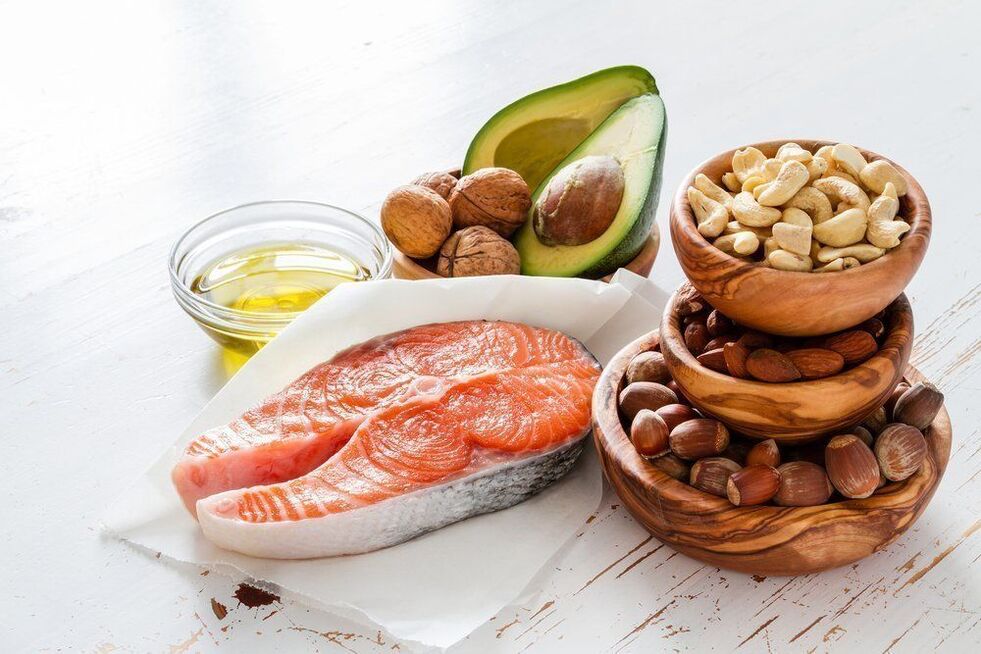
The body is smarter than us. In a situation of sufficient fat intake (that is, above 10% of total calories), the fate of the fat we eat will be stored in fat reserves, and proteins and carbohydrates are used for other processes.
And when the amount of fat taken in is too small, the body begins to convert carbohydrates (and most likely protein, although less often) to store them as fat.
Lie or truth
Of course, under certain conditions, the keto diet will work and you will lose weight. But it's not about him, not about fat and not about the special menu. The truth is you'll just eat less!
That's how long they despise diets, but people don't believe them: and rightly so, because diets work!
Here, for example, is a meta-analysis of about 50 studies comparing 11 popular diets that can be grouped: low-carb (Atkins, South Beach, Zone), low-fat (Ornish, Rosemary Conley), balanced (Jenny Craig, Nutrisystem, Weight Watchers).
It turns out (surprisingly) that any diet for weight loss is better than no diet at all.
After six months, people on the low-carb diet lost more weight. But the overall difference in weight loss (difference in indicators) between all diets is insignificant: a few hundred grams.
For example, on a low-carb diet for 6 months, the average weight loss was 8. 73 kg and 7. 25 kg in 12 months, and on a low-fat diet 7. 99 kg in 6 months and 7. 27 kg in 12 months.
Research has shown that compared to severely calorie-restricted diets, low-carb diets may be slightly more effective for short-term weight loss.
This is partly due to a decrease in the body's glycogen stores (in the liver and muscles) and associated fluid loss (which amounts to about 2 kg for the average adult). But, as we see, in the long run there is little difference between them.
A study comparing low-carb and low-fat diets over the past 2 years found that there was no significant difference in weight loss between the two.
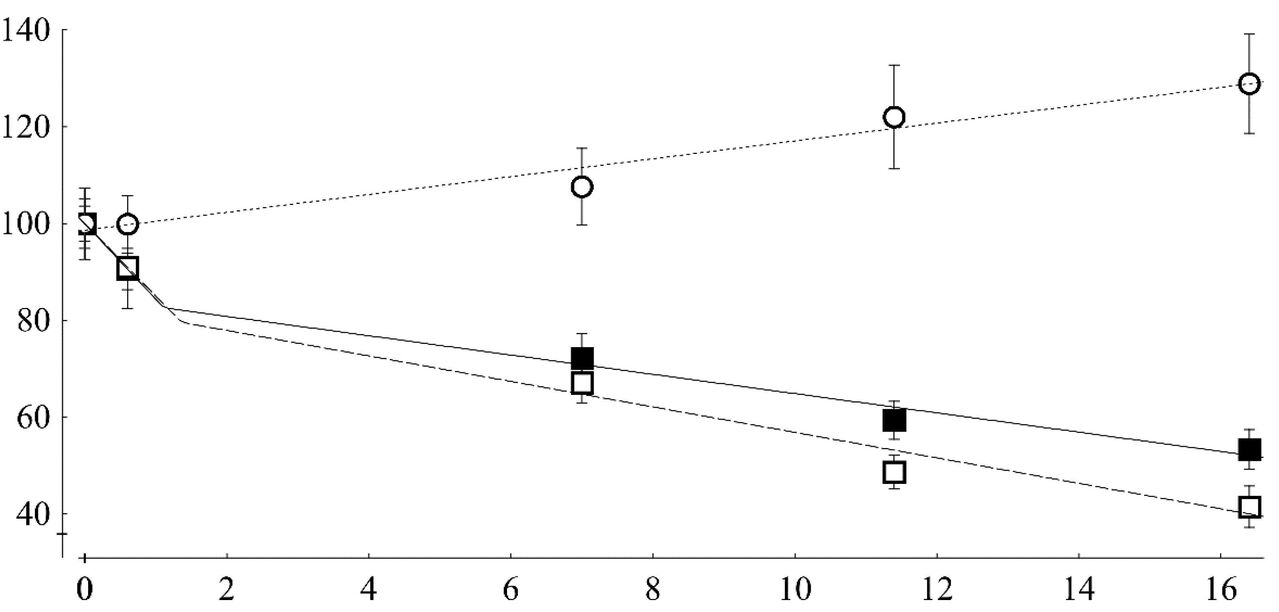
By the way, please note that the diet is most effective in the first six months. And after a year, the weight generally starts to increase. An interesting example of metabolic adaptation.
Benefits and effects
The ketogenic diet does not make people hungry and does not eliminate calories. Roughly speaking, we only balance the reduction of carbohydrates with protein and fat.
Of course, this does not mean that by dramatically reducing carbohydrate intake, you can eat too many fatty and protein foods. Calorie intake must be kept within normal limits. Another undoubted advantage of the keto diet is appetite control.
Many people who have been on one diet or another know that the strongest appetite comes only during a diet. The keto diet eliminates hunger. Fatty and protein foods, which are rich in the keto diet, allow a person not to experience a brutal appetite and at the same time lose weight.
Harm
Since the ketogenic diet emphasizes fatty and protein foods, digestive disorders are possible - heaviness in the stomach, flatulence, constipation.
This is because the diet does not contain fiber, which is found in bread, potatoes, fruits and vegetables. To avoid digestive problems, you should consume some vegetables and fruits in minimal quantities. For example, cabbage and sour grapes are suitable.
Another drawback of the keto diet is the unpredictability of glucose deficiency. It is not known how your body will behave if you deprive it of such an important source of energy.
It will take time for the body to convert to ketone bodies. As a rule, in the first week a person feels malaise, dizziness and general weakness. It is important to last for at least 21 days to see the results of the diet.
A reduction in the amount of micronutrients (vitamins/minerals, etc. ) is a common occurrence with any low-carb diet, since most of the micronutrients come to us from carbohydrate foods. Therefore, you need to use a vitamin-mineral complex.
The decrease in blood acidity occurs as a reaction due to the increase in the amount of ketones in it.
If you have problems with carbohydrate metabolism (for example, diabetes), then vomiting and "ketoacidosis" are possible. In a healthy body, ketones are used without consequence. By the way, the smell of acetone confirms this (a sign of ketone consumption).
We've already seen ketosis rush into the comments screaming "I've been in ketosis for 116 days and I'm more active than ever! " Let's give our personal opinion, ketosis are worse than vegans in online battles. Not all, but for some reason very many.
Go to any article on this topic, and you will see how they pour a bucket of dirt on the author, simply because he did not write a eulogy to fat. We always advise them to eat soba and keep calm.
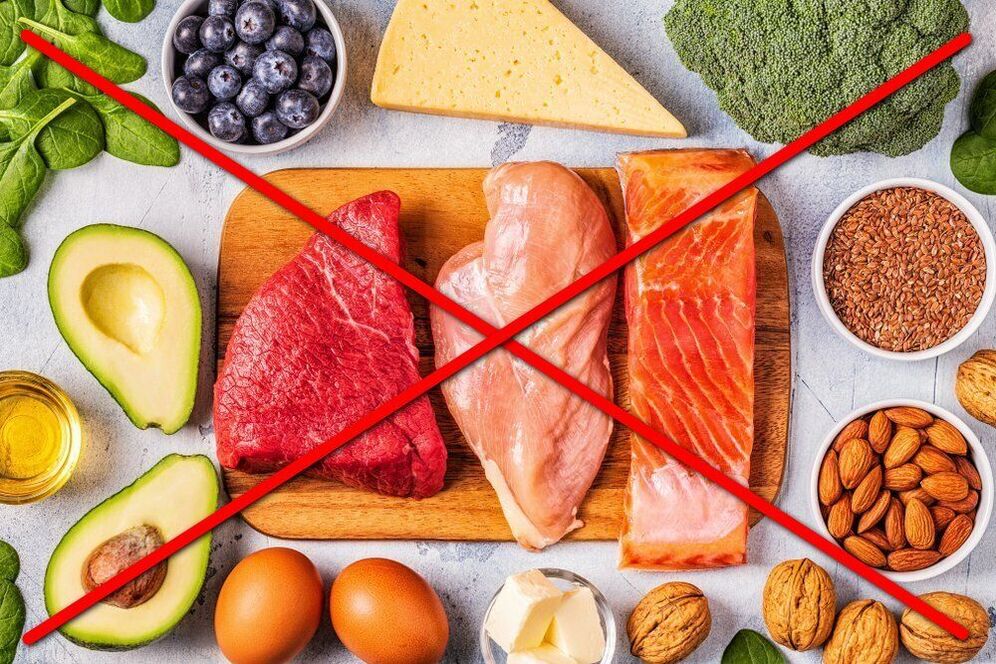
This may be due to the fact that a person projects his personal inner conflict onto others. This is especially true when it comes to nutrition/sports/religion. For example, a person's mind is forced to constantly argue with many factors, and such a person tries to voice the arguments against them loudly, in a dispute with an external opponent, so as to feel like a winner.
Another example is that a person who is new to some food system suppresses his own doubts in the dispute. In short, these people do not argue with you, but with themselves, it is better not to bother them, they will bite you to death, you are made of protein and fat.
In addition, if you personally "it's all a lie, I don't eat charcoal and feel great, " then this does not mean that this is the case for others too! An individual's personal experience cannot prove or disprove anything.
why? Yes, because your "personal opinion" and comments are small wagons and carts and everyone is different. Who will you trust, who has the prettier nickname?
Contraindications for use
For any deviation from health, any diet or exercise should be used only after consulting a doctor. People with kidney, digestive system, or intestinal disease should not use the keto diet.
The lack of glucose initially strongly affects brain activity, so such a diet is undesirable for mental workers.
And by the way, the American Dietetic Association does not recommend a keto diet due to ketoacidosis, but recommends another diet that contains more carbohydrates.
Reference: diabetic ketoacidosis (ketoacidosis) is a variant of metabolic acidosis associated with impaired carbohydrate metabolism due to insulin deficiency: high concentrations of glucose and ketone bodies in the blood.
On the one hand, the keto diet is easy, on the other hand, it is very difficult. Of course, it all depends on the chosen form. Some people act so fanatically that the diet ends badly. You can not ignore the rules of the diet, you need to listen to your body and rest. In the end, the main thing is health, you should not forget about it. Think for yourself, decide for yourself.






























